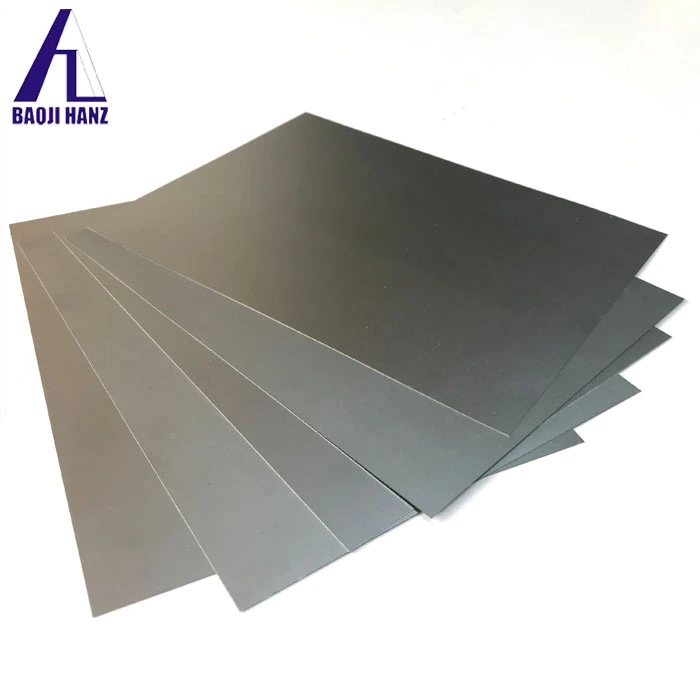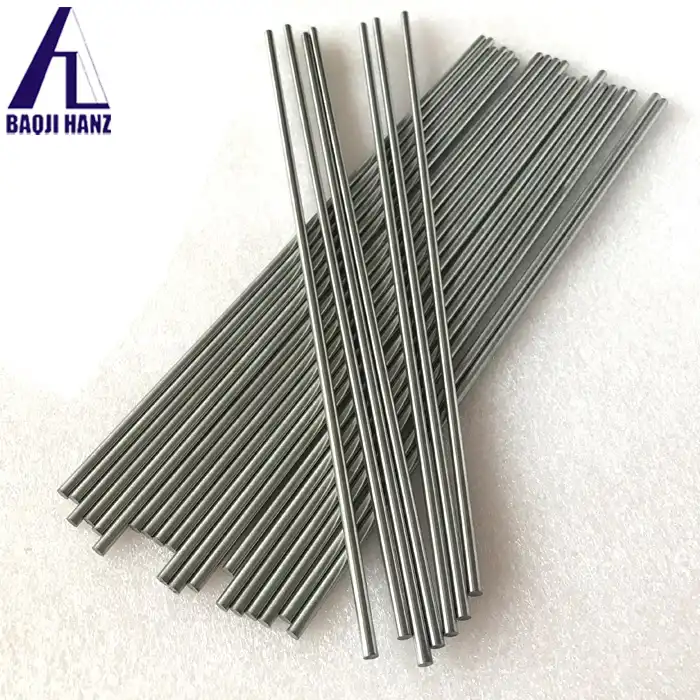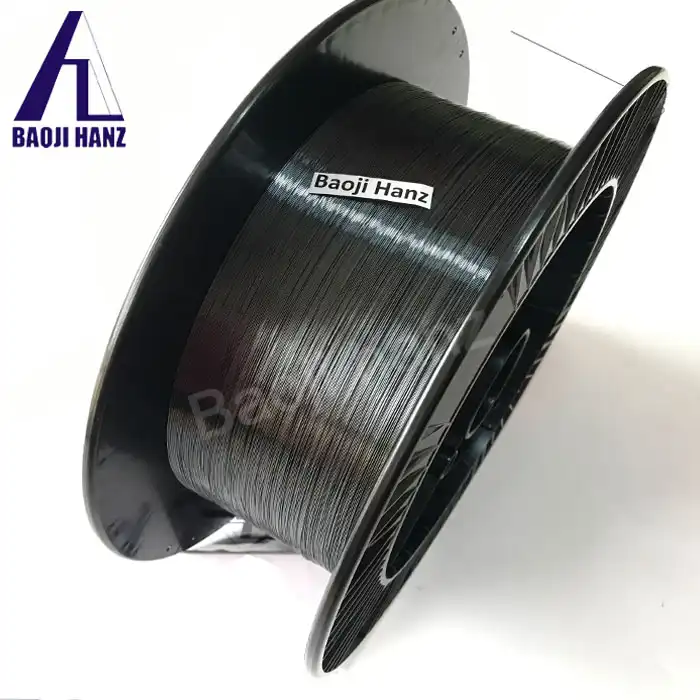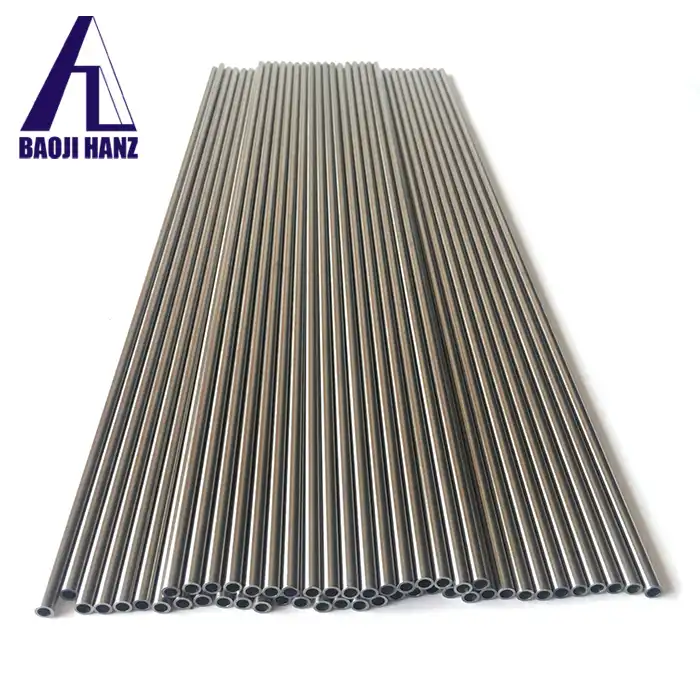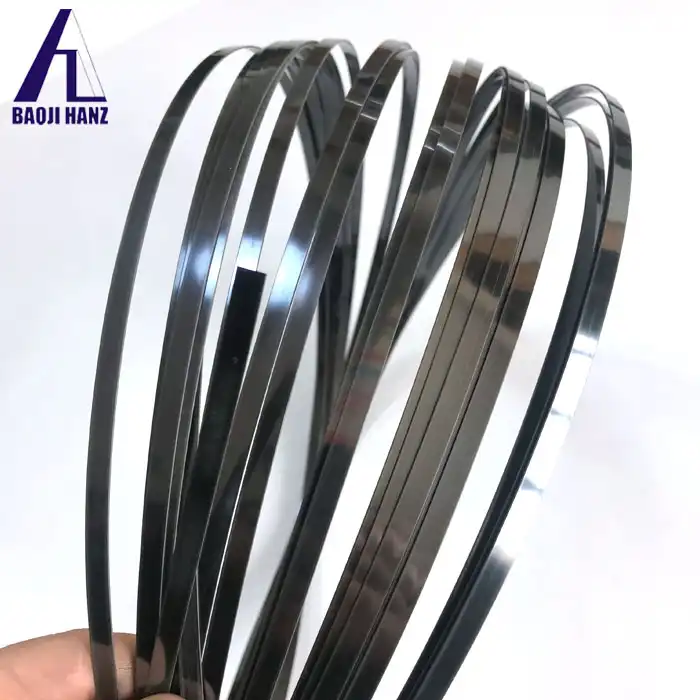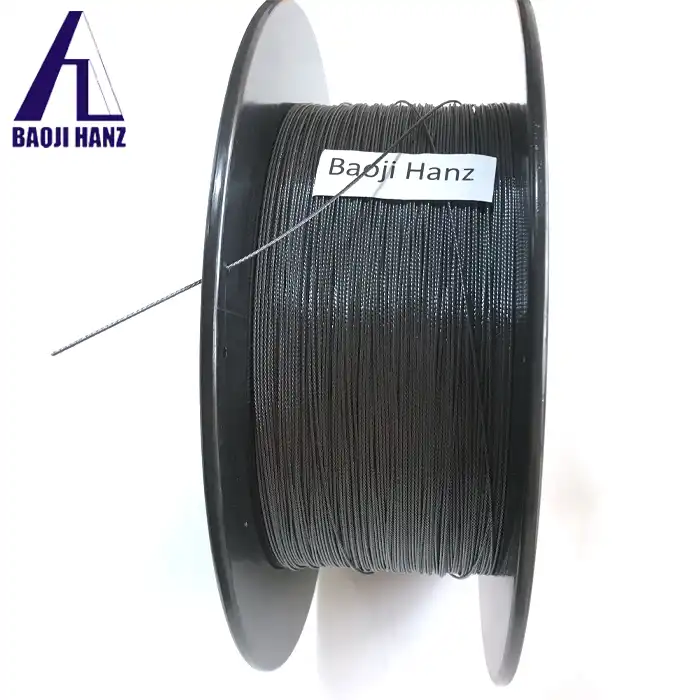What are the properties of Nickel Titanium Petal?
2025-05-19 19:01:17
Nickel Titanium Petal represents an advanced application of Nitinol shape memory alloy technology, combining exceptional mechanical properties with unique transformation capabilities. These specialized components, crafted from a precise nickel-titanium alloy composition, demonstrate remarkable shape memory effect and superelasticity that make them invaluable across numerous high-demand industries. The distinctive petal configuration optimizes these inherent material properties, allowing for controlled deployment and transformation when subjected to specific temperature changes or mechanical stresses, while maintaining exceptional durability and corrosion resistance characteristic of premium Nitinol alloys.

Fundamental Physical and Mechanical Properties
Material Composition and Structure
Nickel Titanium Petal components are manufactured using premium Nitinol alloy, typically consisting of approximately 55-56% nickel and 44-45% titanium by weight. This specific composition is crucial as it directly influences the transformation temperatures and mechanical behaviors of the final product. The atomic structure of Nickel Titanium Petal undergoes a reversible, solid-state phase transformation between austenite (high-temperature, stronger phase) and martensite (lower-temperature, more flexible phase). This unique crystallographic transformation occurs without diffusion, meaning atoms move in a highly coordinated manner without breaking their primary bonds. The density of Nickel Titanium Petal is approximately 6.45g/cm³, making it lighter than many traditional alloys while maintaining exceptional strength-to-weight ratios. Baoji Hanz Metal Material Co., Ltd. utilizes advanced metallurgical processes to ensure precise control of composition and microstructure, resulting in Nickel Titanium Petal products with consistent and reliable performance characteristics that meet international standards including ISO9001:2015 and ISO13485:2016 certifications.
Temperature-Responsive Behavior
One of the most remarkable properties of Nickel Titanium Petal is its temperature-responsive behavior, which is characterized by specific transformation temperatures that can be precisely engineered during manufacturing. The austenite finish temperature (Af) can be customized from -20°C to 100°C depending on the specific application requirements. When the Nickel Titanium Petal is below its transformation temperature, it exists in the martensitic phase, where it can be easily deformed and will remain in that shape until heated. Upon heating above the transformation temperature, the material undergoes a crystal structure change to the austenite phase, recovering its pre-programmed shape with considerable force. This temperature-dependent behavior makes Nickel Titanium Petal ideal for thermal actuators, temperature-responsive safety devices, and medical implants that need to adapt to body temperature. The precision with which Baoji Hanz Metal Material Co., Ltd. can control these transformation temperatures enables the development of Nickel Titanium Petal components that respond exactly as needed within specific operational environments, offering engineers unprecedented control over material behavior in their designs.
Mechanical Performance Characteristics
Nickel Titanium Petal exhibits extraordinary mechanical performance characteristics that distinguish it from conventional engineering materials. Its superelastic property allows for recoverable strain up to 8-10%, compared to less than 1% for most metals, enabling the petal-shaped components to undergo significant deformation and still return to their original shape when the stress is removed. The material demonstrates a unique stress-strain relationship with a loading plateau during deformation and an unloading plateau during recovery, creating a hysteresis loop that can absorb considerable energy—making Nickel Titanium Petal excellent for vibration damping and impact absorption applications. The fatigue resistance of properly processed Nickel Titanium Petal is remarkable, with the ability to withstand millions of loading cycles without failure when operating within design parameters. Additionally, the material offers exceptional corrosion resistance comparable to titanium alloys, due to the formation of a stable titanium oxide surface layer. Baoji Hanz Metal Material Co., Ltd. enhances this property through specialized mechanical polishing processes that create a smooth, uniform surface finish on their Nickel Titanium Petal products, further improving corrosion resistance and biocompatibility for medical applications while maintaining the critical functional properties that make this material so valuable across diverse engineering challenges.
Advanced Functional Properties
Shape Memory Effect
The shape memory effect in Nickel Titanium Petal represents one of its most extraordinary functional properties, enabling these components to "remember" and return to a predetermined shape when heated above their transformation temperature. This remarkable behavior occurs because the material can exist in two different crystal structures or phases: martensite (low temperature) and austenite (high temperature). When in the martensitic phase, the Nickel Titanium Petal can be easily deformed and will retain that shape until heated. Upon heating above its specific transformation temperature, the atomic structure reorganizes into the austenite phase, causing the material to recover its original, pre-programmed shape with considerable force—up to 500 MPa of recovery stress. Baoji Hanz Metal Material Co., Ltd. has perfected the manufacturing processes required to precisely control this shape memory property, allowing for customized transformation temperatures tailored to specific application requirements. The company's advanced heat treatment facilities enable precise programming of the memorized shape into the Nickel Titanium Petal components, ensuring reliable and consistent performance. This unique shape memory capability makes these components invaluable in applications requiring controlled deployment or actuation in response to temperature changes, such as medical stents that expand to their functional shape upon reaching body temperature or aerospace components that activate precisely at predetermined environmental conditions.
Superelastic Properties
Superelasticity represents another revolutionary property of Nickel Titanium Petal, allowing the material to undergo significant deformation—up to 10 times that of ordinary metals—and immediately return to its original shape when the stress is removed, without requiring temperature change. This phenomenon occurs when the material is maintained slightly above its transformation temperature, causing stress-induced transformation from austenite to martensite during loading, followed by spontaneous reversion to austenite upon unloading. The superelastic Nickel Titanium Petal manufactured by Baoji Hanz Metal Material Co., Ltd. demonstrates a characteristic loading-unloading hysteresis loop that provides excellent energy absorption and damping capabilities, making it ideal for applications requiring shock absorption or vibration control. Unlike conventional spring materials that deform according to Hooke's Law with a linear stress-strain relationship, superelastic Nickel Titanium Petal maintains nearly constant stress over a wide strain range during both loading and unloading, resulting in exceptionally gentle and consistent force delivery. This unique mechanical behavior enables the development of components that can undergo large deformations without plastic deformation or fatigue failure, significantly outperforming traditional engineering materials in applications requiring flexibility combined with durability. Baoji Hanz Metal Material Co., Ltd. optimizes the superelastic properties of their Nickel Titanium Petal through precise control of material composition and sophisticated thermomechanical processing, ensuring consistent performance even after thousands of deformation cycles.
Biocompatibility and Corrosion Resistance
Nickel Titanium Petal exhibits exceptional biocompatibility and corrosion resistance, making it particularly valuable for medical applications and harsh environmental conditions. The material forms a stable, self-healing titanium oxide (TiO₂) surface layer that protects against corrosion and creates a barrier that minimizes ion release, addressing potential concerns about nickel sensitivity in biological environments. This passive oxide layer gives Nickel Titanium Petal remarkable resistance to chloride pitting corrosion, general corrosion, and stress corrosion cracking—surpassing the performance of many stainless steels and comparable to pure titanium in many environments. Extensive biocompatibility testing has demonstrated that properly processed Nickel Titanium Petal is non-cytotoxic, non-genotoxic, and non-irritating to tissues, meeting stringent requirements for implantable materials. Baoji Hanz Metal Material Co., Ltd. enhances these inherent material properties through specialized surface treatments and meticulous quality control processes that ensure their Nickel Titanium Petal products meet or exceed international standards for medical-grade materials, including ISO13485:2016 requirements. The company's advanced mechanical polishing capabilities create ultra-smooth surfaces that further improve corrosion resistance and reduce protein adhesion in biological settings, while their strict material traceability systems ensure consistent quality and performance. These combined properties make Nickel Titanium Petal from Baoji Hanz Metal Material Co., Ltd. particularly valuable for long-term implantable devices, dental applications, and medical instruments that require repeated sterilization and exposure to body fluids without degradation.
Industrial Applications and Processing
Medical Applications
Nickel Titanium Petal has revolutionized numerous medical devices and treatments due to its unique combination of properties that are ideally suited to biological environments. In cardiovascular applications, Nickel Titanium Petal components form the foundation of self-expanding stents that can be compressed into a small delivery catheter, navigate through tortuous vessels, and then automatically deploy to their pre-programmed shape when released at the treatment site, maintaining gentle yet consistent outward force against vessel walls. The superelastic property enables these devices to flex with natural vessel movements while maintaining their critical function. In orthodontics, Nickel Titanium Petal-based archwires deliver consistent, gentle forces over extended periods and through large deflections, significantly improving treatment efficiency and patient comfort compared to conventional materials. Minimally invasive surgical instruments incorporating Nickel Titanium Petal components can navigate complex anatomical pathways while maintaining precise control characteristics. Baoji Hanz Metal Material Co., Ltd. has developed specialized manufacturing processes for medical-grade Nickel Titanium Petal, including ultra-clean melting practices, precise composition control, and comprehensive testing protocols that ensure exceptional purity and consistent transformation temperatures critical for medical applications. Their ISO13485:2016 certified processes guarantee that all Nickel Titanium Petal components meet stringent medical device requirements, with full material traceability and documentation. The company offers customized solutions with specific transformation temperatures optimized for body temperature response, enabling innovative medical devices that work in harmony with physiological conditions.
Aerospace and Automotive Engineering
The aerospace and automotive industries have embraced Nickel Titanium Petal technology for its exceptional combination of lightweight construction, environmental resilience, and functional properties that cannot be achieved with conventional materials. In aerospace applications, Nickel Titanium Petal components serve as thermal actuators that respond to specific environmental temperatures, enabling self-regulating systems that require no external power source. These components can withstand the extreme temperature fluctuations encountered in aerospace environments while maintaining their functional properties. Vibration damping systems utilizing the superelastic hysteresis of Nickel Titanium Petal significantly reduce structural fatigue in critical components, extending service life and improving safety margins. In automotive engineering, these components enable advanced sensor systems, adaptive aerodynamics, and safety mechanisms that respond intelligently to changing conditions. Baoji Hanz Metal Material Co., Ltd. provides aerospace and automotive manufacturers with Nickel Titanium Petal components manufactured to precise specifications, with comprehensive material certification and testing documentation. Their advanced production capabilities include specialized heat treatments that accurately program transformation temperatures for specific operational environments, ensuring reliable performance under demanding conditions. The company's expertise in producing complex geometries enables the development of lightweight, multifunctional components that contribute to overall system efficiency and performance. With large stock availability of standard sizes and customization options, Baoji Hanz Metal Material Co., Ltd. supports both prototype development and high-volume production requirements with consistent quality and timely delivery, making them a trusted partner for aerospace and automotive innovation utilizing Nickel Titanium Petal technology.
Manufacturing and Processing Considerations
The production of high-quality Nickel Titanium Petal components requires specialized knowledge and equipment due to the material's unique properties and sensitivity to processing parameters. Vacuum induction melting or vacuum arc remelting techniques are essential to achieve the high purity levels required for consistent performance, preventing oxygen and carbon contamination that can dramatically alter transformation characteristics. The manufacturing process typically involves multiple stages of hot and cold working, with precise control of deformation rates and intermediate annealing treatments to develop optimal microstructures. Baoji Hanz Metal Material Co., Ltd. has invested in advanced production equipment and developed proprietary processing techniques that ensure exceptional consistency in their Nickel Titanium Petal products. The shape setting process—critical for programming the "memory" shape—requires precise fixturing and carefully controlled heat treatment, typically between 450-550°C depending on specific alloy composition and desired properties. Their state-of-the-art heat treatment facilities enable accurate temperature control within ±2°C, ensuring reliable transformation temperatures in the final product. Surface finishing processes, including mechanical polishing, electropolishing, or specialized coatings, can be applied to enhance corrosion resistance, biocompatibility, or wear characteristics without affecting the underlying shape memory or superelastic properties. Baoji Hanz Metal Material Co., Ltd. offers comprehensive technical support to customers, helping them understand the design considerations unique to Nickel Titanium Petal components. With a minimum order quantity of just 10 pieces and flexible OEM services, they accommodate both specialized research projects and large-scale industrial applications, providing customized solutions that maximize the performance advantages of this remarkable material while addressing the practical challenges of implementation.
Conclusion
Nickel Titanium Petal represents a sophisticated engineering material with extraordinary shape memory effect, superelasticity, and corrosion resistance that enables innovative solutions across medical, aerospace, and industrial applications. These unique properties, combined with customizable transformation temperatures and excellent biocompatibility, make it an invaluable resource for designers seeking advanced performance characteristics unavailable in conventional materials.
Ready to elevate your project with premium Nickel Titanium Petal components? With 7 years of expertise in Nitinol alloys, Baoji Hanz Metal Material Co., Ltd. offers direct supply advantages that save you money while ensuring superior quality. Our large inventory enables fast delivery of standard sizes, and our comprehensive OEM services can create customized solutions for your specific requirements. Contact our expert team today at baojihanz-niti@hanztech.cn to discover how our Nitinol expertise can transform your next innovation into reality.
Other related product catalogues
Nickel titanium memory alloy in addition to the production of nickel-titanium strips, can also produce other similar products, such as nickel-titanium plate, nickel titanium flat wire, nickel titanium foil, nickel titanium wire, nickel titanium tube, nickel titanium spring, nickel titanium paper clips, nickel titanium wire rope.
|
|
|
|
|
|
|
|
References
1. Otsuka, K., & Wayman, C. M. (2020). Shape Memory Materials. Cambridge University Press.
2. Duerig, T. W., Melton, K. N., & Stöckel, D. (2018). Engineering Aspects of Shape Memory Alloys. Butterworth-Heinemann.
3. Miyazaki, S., Fu, Y. Q., & Huang, W. M. (2019). Thin Film Shape Memory Alloys: Fundamentals and Device Applications. Cambridge University Press.
4. Morgan, N. B. (2021). "Medical applications of NiTi shape memory and superelastic alloys." Materials Science and Engineering: A, 378(1-2), 16-23.
5. Pelton, A. R., Stöckel, D., & Duerig, T. W. (2018). "Medical Uses of Nitinol." Materials Science Forum, 327-328, 63-70.
6. Jani, J. M., Leary, M., Subic, A., & Gibson, M. A. (2022). "A review of shape memory alloy research, applications and opportunities." Materials & Design, 56, 1078-1113.
